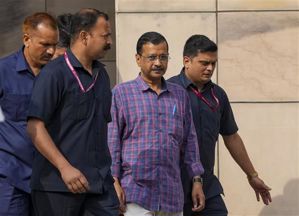Pushpa Girimaji
Following repudiation of a claim under an overseas mediclaim policy, I had approached the Insurance Ombudsman for relief. Even though the Ombudsman gave an oral order accepting my entire claim amount, this was not communicated in writing. Subsequently, he called for re-hearing of the case and awarded only partial claim amount. My question is whether the Insurance Ombudsman has the power to review or revise his own order, communicated orally?
The Insurance Ombudsman does not have the power to review his own order. In Rajeev Hitendra Pathak Vs Achyut Kashinath Karekar (CA NO 4307 of 2007) and another, the Supreme Court dealt with the question of whether the consumer courts at the state and the district level have the power to review their orders and its verdict was that they do not have such a power. The Supreme Court said: “On careful analysis of the provisions of the Act (the Consumer Protection Act of 1986), it is abundantly clear that the tribunals are creatures of the Statute and derive their power from the express provisions of the Statute. The District Forums and the State Commissions have not been given any power to set aside ex-pare orders and power of review and the powers which have not been expressly given by the Statute cannot be exercised.” So applying the same logic, one can say that as there is no provision under the Insurance Ombudsman Rules for review of the Award, they do not have such power.
However, having said that, I must point out that in your case, the first decision came orally and it was not communicated in writing at all, as required under the Rules governing the Ombudsman Scheme. Rule 16 of the Redressal of Public Grievances Rules, 1998 says that “An Award shall be in writing …” Similarly, Rule 17 of the Insurance Ombudsman Rules, 1977 , which has replaced the earlier Rules, also says that: “The Award shall be in writing and shall sate the reasons on which the award is based.”
So, technically, the oral order pronounced by the Ombudsman may not be considered an Award as it was not in writing, as required under the Rules. Of course, these are only general observations because I do not know the full details of your case, nor have I read the Award of the Ombudsman.
My second question is: Can the Insurance Ombudsman ask the insured to accept his partial award as full and final payment? Can one file a petition before the consumer court after giving such consent?
The Ombudsman may seek your consent for the award, however, you are not bound to accept it and have every right to reject it if the award is unacceptable to you. You are then free to approach any other forum, including the consumer courts for justice. In fact, the insurance regulator clearly says that “in case a complainant is not satisfied with the Award of an Insurance Ombudsman, he can exercise his right to take recourse to the normal process of law against the insurance company.”
However, having accepted the award as full and final payment, it would be difficult for you to seek the help of the consumer court, unless, of course, you can convincingly argue that you were forced to accept the partial award because of the financial difficulties caused on account of the repudiation of the claim and later the delay in the Ombudsman’s decision, particularly on account of the review. An Ombudsman is supposed to give an award within three months.
I must mention here that the Supreme Court, in United India Insurance Vs Ajmer Singh Cotton and General Mills, held that an insured can approach the consumer forum for relief even after signing the ‘full and final’ voucher, if he can prove that his signature on the voucher was obtained by the insurer ‘by fraud, misrepresentation, undue influence, or coercive bargaining compelled by circumstances.’
But, subsequently, in United India Insurance Vs Gurbachan Kaur, the apex consumer court said: “When an insurance company decides to settle a widow’s claim after a delay of two years and asks her to sign the printed voucher before handing over the cheque, it could be said that it (signature) was obtained by coercion.”
This applies to the settlement of claims by insurance companies, but you can use the same argument here and the consumer court may well accept your case for the remaining claim amount. It all depends on the strength of your case and your arguments.


























